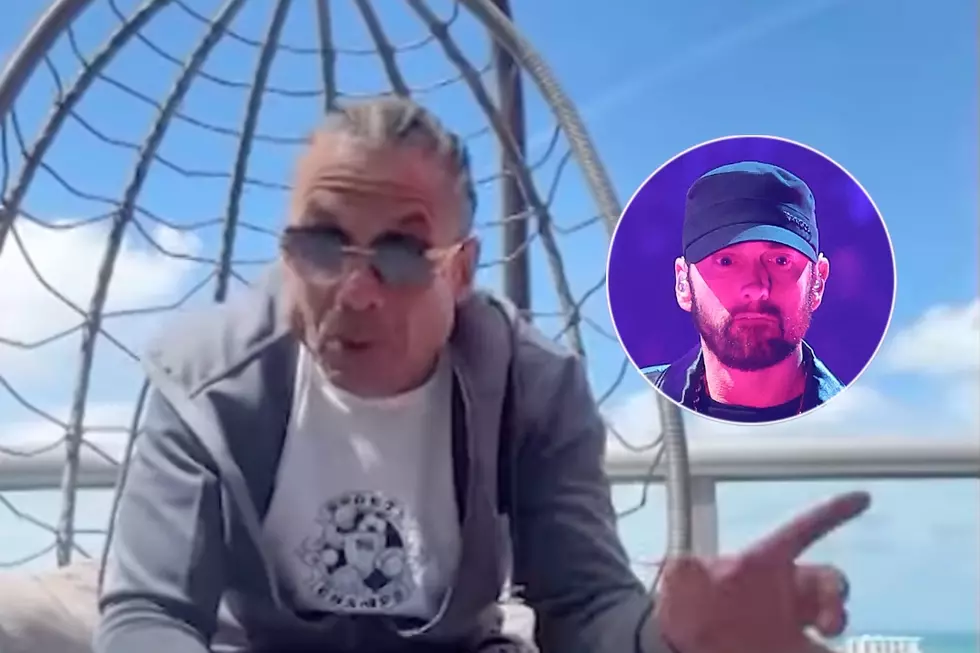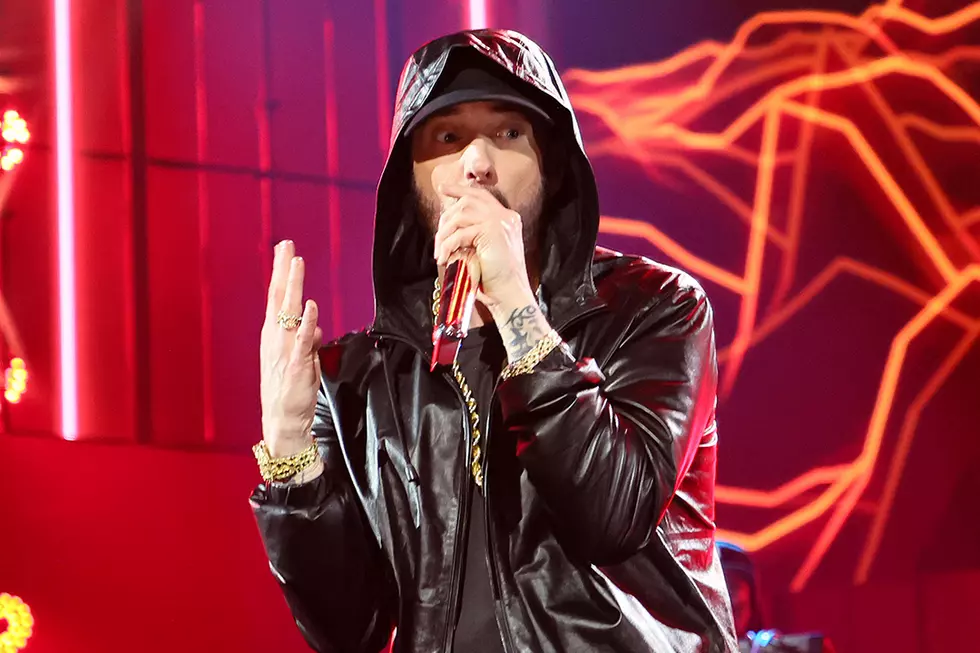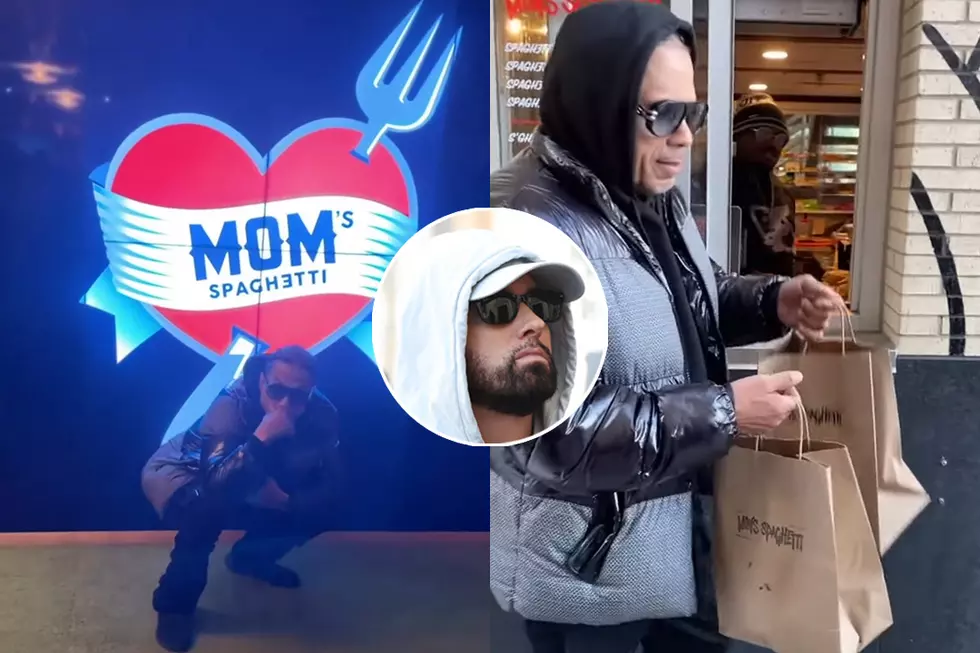FEATURE: White Noise
Since emerging from the streets of the South Bronx in the early 1970s, hip-hop has been an important voice for urban youth. Existing under a kind of for-us, by-us mentality, the genre has been dominated mostly by Black and Latino artists. Throughout the years, though, there’s been a peppering (actually, more like a salting) of Caucasian rappers that managed to earn a ghetto pass. One of the earliest went to singer Debbie Harry, who spit a few memorable bars on new-wave band Blondie’s 1981 crossover hit “Rapture” (“Fab 5 Freddy told me everybody’s fly/DJ’s spinnin’, I said, ‘My, My’/Flash is fast, Flash is cool/Francois c’est pas, Flash non due”).
The late 1980s would introduce rap fans to pioneering White rap acts like the Beastie Boys and 3rd Bass. While they raised the acceptance bar for melanin-deprived MCs, hip-hop remained a predominantly Black genre. In fact, the 1990 debut of industry by-product Vanilla Ice threatened to close the door on the idea of a White rapper forever. Despite having one of the best-selling rap singles in history, “Ice Ice Baby,” Vanilla’s fabricated image, which included baggy pants, a gelled blond flattop and hyperactive dance moves, was seen as a mockery of the culture by rap purists.
It looked like there’d never be another non-Black mainstream artist in hip-hop again, but then came a White boy with a ridiculous flow from Detroit named Marshall “Eminem” Mathers. Backed by Dr. Dre, Em went on to sell over 31 million records domestically and single-handedly changed the perception of the Caucasian MC. Amassing a musical résumé that includes Shady Records, his Shade 45 XM radio channel, his Shady Ltd. clothing line, nine Grammys and an actual Oscar, Eminem stands as one of hip-hop’s true megastars, regardless of race.
While the election of Barack Obama as America’s first Black president has made race a bit of a moot point, is hip-hop ready to rate rappers on skill more than their skin color? With the impending return of Eminem, following a five-year hiatus, XXL picked the brains of 17 hip-hop artists that just happen to be White to speak about their plight as snowflake MCs and how Eminem’s success has affected their own careers.
—COMPILED BY MATT BARONE, CARL CHERY, JACK ERWIN, ROB MARKMAN, ANSLEM SAMUEL
BUBBA SPARXXX
A lot of White folks represented in hip-hop—the Beastie Boys, House of Pain, 3rd Bass—but, for some reason, when Vanilla Ice happened, everybody forgot about all that, until Eminem. He broke down so many barriers, not just in terms of being a White rapper, but for hip-hop period… I knew that the way for a White rapper to come back after Vanilla Ice and have success was to embrace the fact he was what or whoever he was and not to run from it. That was the premise of everything I was trying to do. When I came out, I was from the South, and that’s what I was representing, and that’s what my music reflected.
ALCHEMIST
I was rapping before Em and had a deal in ’93, before I started making beats. When Em blew, I looked at it as some inspirational shit, because of his acceptance. Coming from Beverly Hills, I always wanted that. He got the respect of so many people in the music industry, including artists, and that’s what I admired the most. How he was able to establish that credibility, not for being a street guy, but for his music and getting respect from everybody and not being judged.
ESOTERIC
With White rappers, the fan needs to know your background, to make sure you’re hardcore, and with other ethnicities, the fan tends to assume the MC is hardcore. I started in the late ’80s, and then it was a nightmare. Never mind rocking stages—as a fan, you were getting harassed and ice-grilled. It wasn’t until the late ’90s that casual fans tolerated and accepted White MCs. Eminem had positive and negative impacts. In a positive sense, the casual fan has to know at this point that there are talented people of all races that rhyme, and in a negative sense, he’s inspired kids who never grew up with hip-hop to start making horrible music and [think] they can battle anybody because of 8 Mile.
ILL BILL
There aren’t many White MCs in the game, and I think a lot of them wanna be the coolest White boy in the room, but I never involved myself in that. I always been about the music… I was writing rhymes since, like, Run-DMC, before there had been a White rapper on wax, so I was perceived as an alien… It was definitely a big deal to see this White kid from Detroit come out under Dr. Dre’s wing that sold a lot of records and was dope. Vanilla Ice sold a lot of records, but he was wack. If you wanna look at it in that respect, I think Eminem righted that wrong.
HAYSTAK
What Eminem does with words set a bar for lyricism. That’s undeniable. The multiple rhyming schemes, the rhyming eight times in a four-bar measurement, and the way that he does it very innovatively, that set a bar… Every label was trying to snap a rapper up, thinking, Oh, just ’cause he White he’s gonna sell a million copies, but that wasn’t the case. As oddball, goofy, juvenile and ignorant as the shit Eminem was saying was, it was entertaining and was worded well. I don’t have no respect for him as a man, but as a wordsmith, he’s a genius.
MC SERCH
I think what Em really did for the music was he gave it an emotional credence that no one else had given it before. He really dug deep into his relationship with his family and his upbringing, and not just trying to convey a fly rhyme. This kid went to places emotionally that a lot of artists prior to him wouldn’t dare to touch. He took a chunk out of his soul and put it on record… There was never anybody who could associate with trailer-park life until Eminem. He gave kids in the suburbs that were really having a hard time fitting in a voice to vent their frustration and their angst.
VANILLA ICE
When I started high school, we used to have rap battles at keg parties. When I got a little older, I started going to City Lights, an all-Black club. I loved it. It was the only place I could go to hear hip-hop. I was a regular there and the only White boy, but I knew everyone. Later, I was on the Stop the Violence Tour, with Ice-T, Stetsasonic, EPMD, Sir Mix-A-Lot. And later I opened for Public Enemy, Too $hort and N.W.A. I had a blast and was cool with everyone. There was no hate going on. Chuck D is a friend, and I hung out with Ice-T backstage. I had no racial issues going on with my peers. If a song is dope, then it’s a dope song, no matter what color the artist.
More From XXL









